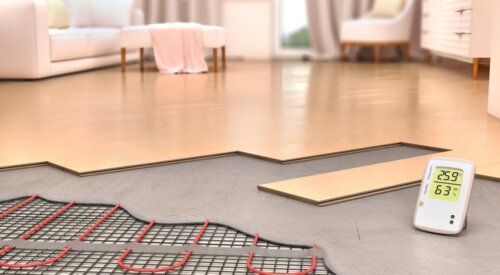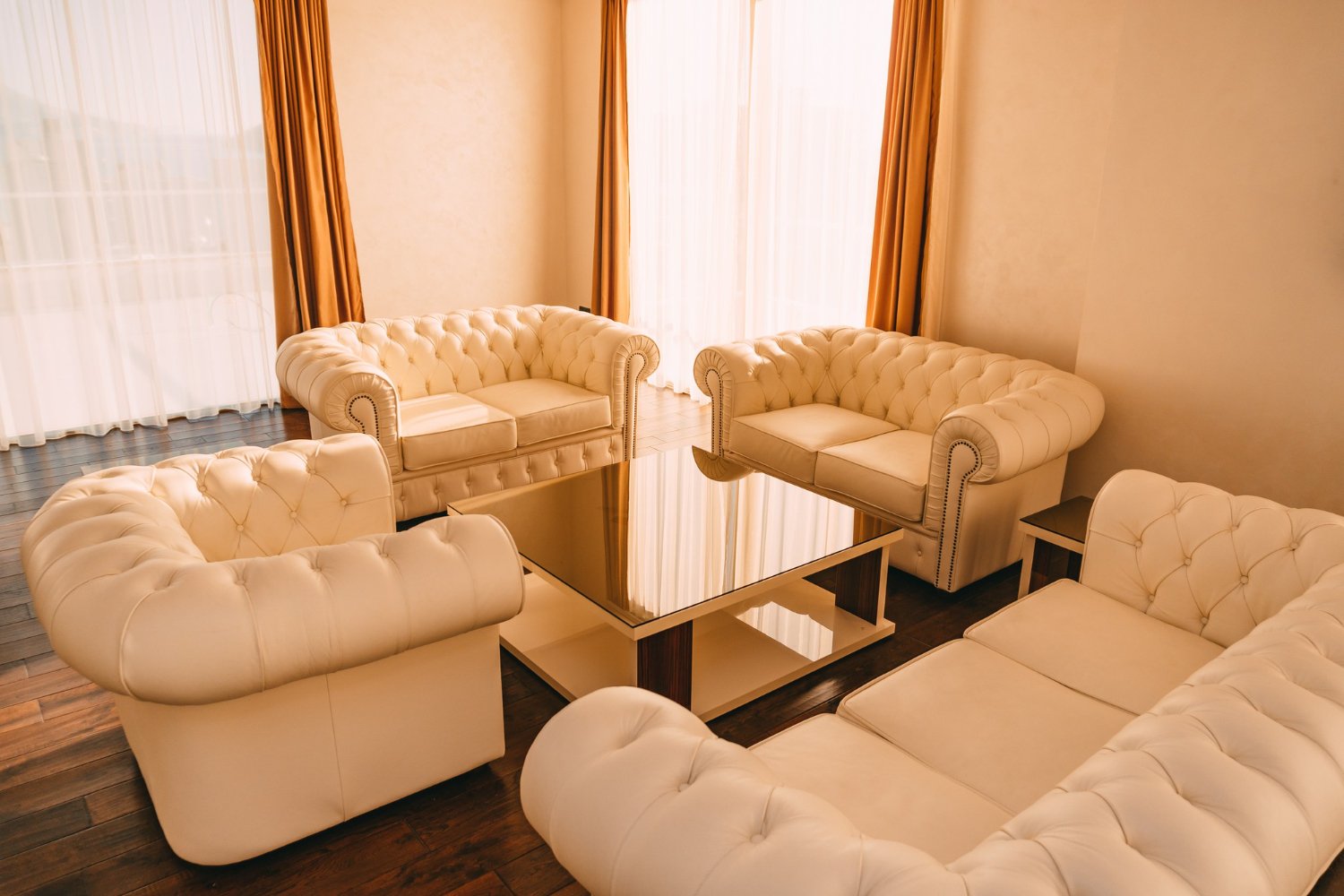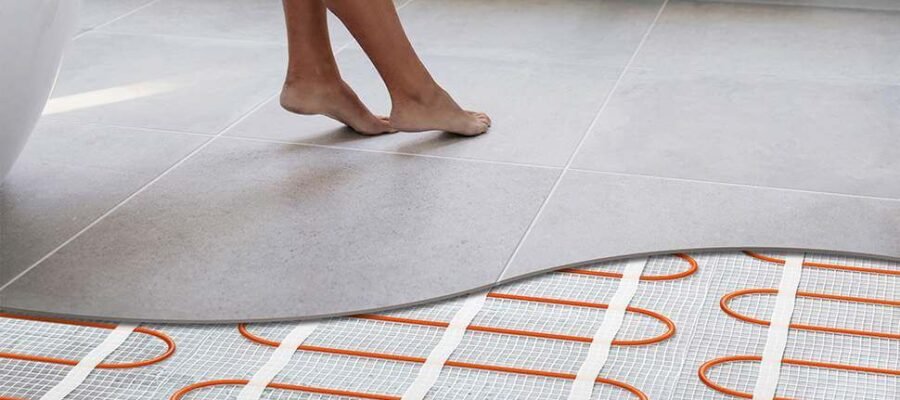Why look for ingenious solutions to hide radiators, when you can do without them altogether, thanks to an underfloor heating system?
Beyond the aesthetic benefits, underfloor heating brings with it a high degree of control. It is especially pleasant that on cold winter days the floors in your home are warm. In fact, the heat that comes from the floor is much better in the space.
Definitely when you opt for a system electric underfloor heatingyou will be able to take advantage of a series of specific advantages. Therefore, whether you want to add such a system to your home, or whether you have not thought about this option, it is good to know what more it can bring you, but also what such a change implies.
There are many of them opinions on electric heating in the floor and it certainly has so much of it advantagesas well as disadvantage. Here’s what you should know about this type of heating so you can make the right decision for your home:
1. Underfloor heating: electric or thermal agent
Even if you have decided that you want underfloor heating for your home, you still have an important decision to make: the one between electric heating and the one with thermal agent (or water, heated with gas, wood, pellet, etc. systems).
These two heating solutions have many differences, starting from assembly and layout, up to consumption and costs, in the short and long term.
While the list of differences is long, here are some things to consider:
- The appearance The electric underfloor heating system is more discreet compared to the thermal agent one, which also has visible elements, such as distribution boxes and supply pipes starting from the boiler.
- assembly The electric heating system is simpler, but less adaptable than the thermal agent one (the pipes of the latter can be cut).
- Assembly costs of electric underfloor heating are lower than those using thermal agents.
- Malfunction Electric heating systems have lower risks of complications than those with a thermal agent (breakage of pipes with a thermal agent causes flooding) and are easier to resolve (locally, without being affected overall).
- All my life It is higher in the case of elements of the electric underfloor heating system than those with a thermal agent.
- Maintenance The electric underfloor heating system is simpler: unlike those using thermal agents, it does not require periodic revisions.
- Technical room or the boiler room. Which brings with it a significant cost.
- Evacuation basket gas or smoke. And here we are talking about the initial cost plus the costs with additional cleaning.
2. The electric underfloor heating kit
Every underfloor heating system has two main components: one Electric underfloor heating kit And a thermostat, with which you will control the operation of the kit. As regards the actual kit, i.e. the underfloor infrastructure, there are two variants: with cable or with carpet.
The first difference between the two concerns the assembly, more precisely for the preparation of the floors. The cable electric underfloor heating system requires pouring an excavation, into which the cable will be inserted. The carpet system has a simpler installation, because it does not require excavation. Its installation is carried out with the help of a special adhesive.
The differences are also found in terms of initial cost, the kit with carpet being more expensive than the one with cable. Given the different structure of the two types of kit (for example, the thickness of the cable differs, which in the case of the carpet is smaller – around 4 mm, versus 7 mm), there are differences in their performance. Specifically, the electric cable heating system is more effective than the carpet.
3.Dolesa tips for electric heating
Electric underfloor heating is compatible with different floor types:
3.1.11. Electric heating under the tiled floor
Tile and natural stone are ideal options for electric heating. The reason lies in the very high thermal transfer of these materials, but also in the fact that they retain heat better.
In essence, the tiled floor cools down more slowly from the moment it stops heating, compared to other types of flooring. Both the thickness of the support/screed and the insulation under the support/screed play an important role in the duration of the heat.
3.2.

If you prefer parquet flooring, you can opt for this. Many types of parquet are compatible with electric heating through the floor and transmit heat well.
For better resistance of the floor it is advisable to opt for specific parquet for heating, double or triple layered. However, avoid hardwood floors or floors that are as narrow as possible.
4. Electric heating: costs with monthly consumption
A topic that interests those who are thinking of opting for an electric underfloor heating system is the monthly price.
The long-term costs of electric underfloor heating depend on two factors: system consumption of heating and the price of electricity.
Any calculation must include two important aspects, electric underfloor heating represents: o complementary source oo single source of heat.
According to some assessmentwhen electric underfloor heating is a complementary heat source, its average consumption is approx 10-12 W/m²/hour.
Instead, estimating energy consumption, when underfloor heating is the only heat source, we arrive at approx 15-25 W/m²/hour.
It is good to know that it is possible to optimize consumption with the help of a chronothermostat; This way you can get a reduction of up to 20%, which has a significant impact on your monthly electricity bill.
To lower the price with monthly consumption, for any type of heating, the thermal insulation of the house is essential, to reduce heat losses as much as possible.
Such as: roof insulation, external wall insulation, ground insulation, external carpentry performance, etc.
5. Suitable for Installation of underfloor heating
Unlike other solutions for heating the house, in the case of the electric floor it is necessary to establish the position of some furniture in advance.
Specifically, the heating system must not be positioned under heavy furniture without legs, such as: kitchen furniture but some models of beds, sofas or wardrobes.
If the installation of the heating system does not take place during construction or initial arrangement, but during a renovation.
It is good to consider that the floors will rise more in the case of the cable kit and less in the case of the carpet kit.
Even if the elevation is not substantial, the doors will most likely need adjustments.
The glue for gluing the floor must be flexible (both the parquet and the tiles), so it will be able to take care of the subsequent contractions and expansions.
latest posts published

How to set up a wardrobe in your apartment: tips and advantages

Discover the sophisticated furnishings of Progetto Decor

Luxury design: the balance between comfort, elegance and functionality

Discover the luxury furnishings of Progetto Decor

Garden in the apartment: discover the advantages

Discover Progetto Decor’s line of custom-made luxury furniture

The main tips for creating integrated environments

Ambient lighting tips

3D projects: transform spaces with luxury and innovation


